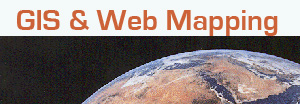In keeping with stricter security measures now in place at Middlebury College, you will sooner or later find that your Middlebury Exchange (network) password will expire, and Outlook will either not let you log in with your old password, or will suddenly ask you to re-enter your password to continue using your Exchange account (your old password will no longer work if this happens).
In order to continue using Exchange you will need to reset your Middlebury network password (not your BannerWeb or BannerINB password). To do this go to the following web URL
https://bat.middlebury.edu/activate/
to Activate (reset) your Middlebury network account.
You will need to enter your BannerWeb ID (the one you use for timecards) and your BannerWeb PIN number to login to reset your network password. Then, simply accept the terms on the following page, and you will be allowed to enter a new password for your Middlebury network account (keep in mind that currently this account is only used for Exchange, and is not tied to your MIIS network account for logging into your MIIS computer in the morning).
Remember that Middlebury uses much stricter standards for entering new passwords, so you will likely need to add at least one capital letter, one number, and one special character for your new password to be accepted. Please write down your new password once it is accepted and store this in a safe place out of sight of passersby. If you forget your Middlebury network password, you can come back to this same URL to reset it again.
If you have forgotten or don’t know your BannerWeb ID, you should contact HR here at MIIS to get this information. Once you have your BannerWeb ID, you can contact the ITS Help Desk, here at MIIS (x6656) to get your BannerWeb PIN reset if necessary.
FYI: Middlebury is working to include MIIS users in their automatic password reminder system, so in the future you may receive an email ahead of time, warning you that your Middlebury network password is about to expire, including instructions on how to reset this (as described above).
Thanks for your patience as we take advantage of this much more powerful email service offered to us by Middlebury College.
